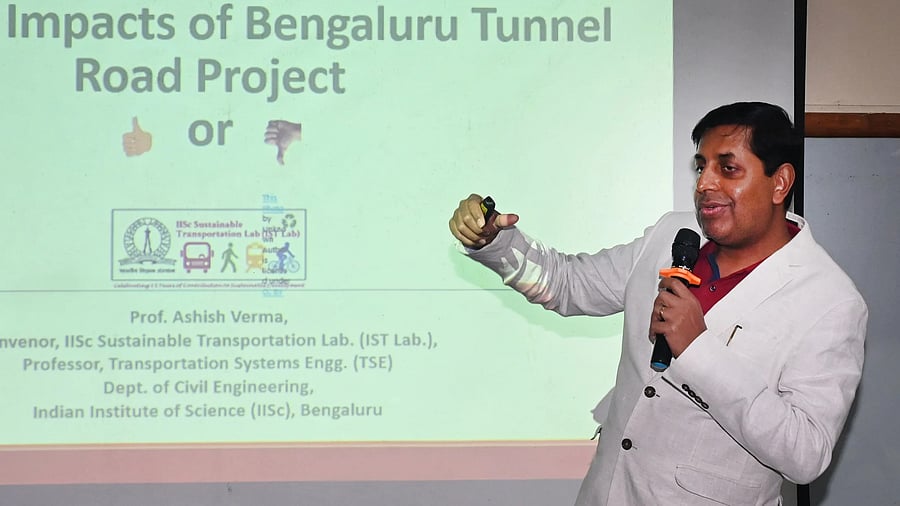
Credit: Special Arrangement
Bengaluru: The State government’s proposed Rs 17,698-crore twin-tunnel project, aimed at easing traffic congestion between Hebbal and Silk Board, is facing sharp criticism from urban mobility experts.
A panel discussion titled Beyond the Tunnel, held on Saturday, featured Prof Ashish Verma of the IISc Sustainable Transportation Lab and Shaheen Shasa of the Bengaluru Bus Prayanikara Vedike. Both raised serious concerns about the project’s efficacy and environmental impact.
Prof Verma presented a study based on macro-simulation models, revealing that the tunnel would be severely underutilised. The study’s scenarios, which included a high-toll model, showed that the tunnel would primarily cater to a very small segment of affluent car owners, with a projected volume-to-capacity ratio as low as 0.1, indicating vast oversupply. Even in a no-toll scenario, utilisation remains low, as only a small percentage of daily commuters use cars. His findings also projected that the tunnel would not significantly alleviate congestion on the existing Outer Ring Road and could potentially increase overall emissions.
Shaheen Shasa backed the professor’s study, highlighting the city’s historical pattern of investing in expensive, car-centric infrastructure like flyovers and underpasses that have failed to solve congestion. She pointed out the stark disparity in investment, noting that bus transport capacity has remained stagnant for decades despite the city’s population swelling to over 1.4 crore and the number of private vehicles exceeding one crore.
Shasa argued that the massive funds earmarked for the tunnel would be better spent on bolstering the public transport system, particularly the bus network, which is more economical, flexible, and serves a much larger portion of the population.
The discussion concluded that the tunnel project is a costly, inequitable, and unsustainable solution.
